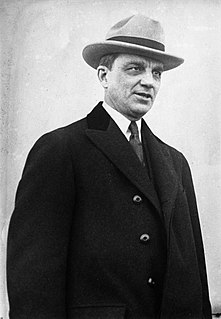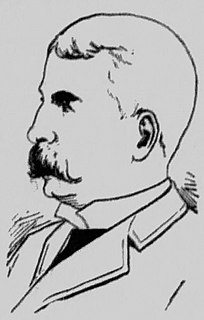A Quote by Samuel Taylor Coleridge
Shakespeare knew the human mind, and its most minute and intimate workings, and he never introduces a word, or a thought, in vain or out of place; if we do not understand him, it is our own fault.
Related Quotes
That part of Christ's nature which was profoundly human helps us to understand him and love him and to pursue his Passion as though it were our own. If he had not within him this warm human element, he would never be able to touch our hearts with such assurance and tenderness; he would not be able to become a model for our lives.
Vanity is really the least bad and most pardonable sort. The vain person wants praise, applause, admiration too much and is always angling for it. It is a fault, but a childlike and even (in an odd way) a humble fault. It shows that you are not yet completely contented with your own admiration. You value other people enough to want them to look at you. You are in fact still human.
Perhaps that is our doom, our human curse, to never really know one another. We erect edifices in our minds about the flimsy framework of word and deed, mere totems of the true person, who, like the gods to whom the temples were built, remains hidden. We understand our own construct; we know our own theory; we love our own fabrication. Still . . . does the artifice of our affection make our love any less real?
It is not a question of sitting silently, it is not a question of chanting a mantra. It is a question of understanding the subtle workings of the mind. As you understand those workings of the mind a great awareness arises in you, which is not of the mind. That awareness arises in your being, in your soul, in your consciousness.
I have so fixed the habit in my own mind that I never raise a glass of water to my lips without a moment's asking of God's blessing. I never seal a letter without putting a word of prayer under the seal. I never take a letter from the post without a brief sending of my thoughts heavenward. I never change classes in the section room without a minute's petition on the cadets who go out and those who come in.
You're part of the human fabric of experience. You don't have to have cancer to write about cancer. You don't have to have somebody close to you die to understand what death is. Definitely, the more you live, the more experiences fall into your spectrum. As a writer, you must have been told: Write about what you know. But Kafka didn't. Gogol didn't. Did Shakespeare write only what he knew? Our own selves are limitless. And our capacity for empathy is giant.
Never allow any unnecessary or vain thought to occupy your mind. This is more easily said than done. You cannot make your mind a blank all at once. So in the beginning try to prevent evil or idle thoughts by occupying your mind with the analysis of your own faults, or the contemplation of the Perfect Ones.
Jesus came to reveal God to us. He is the defining word on God—on what the heart of God is truly like, on what God is up to in the world, and on what God is up to in your life. An intimate encounter with Jesus is the most transforming experience of human existence. To know him as he is, is to come home. To have his life, joy, love, and presence cannot be compared. A true knowledge of Jesus is our greatest need and our greatest happiness. To be mistaken about him is the saddest mistake of all.
I knew Bill Cunninghamn personally, in the way that most people know him - you don't really know that much about him. So I had never been in his apartment, as most people hadn't. I really had no idea how he lived. I knew he lived in Carnegie Hall, but that was it, and I didn't really understand. I knew that he worked hard, I just didn't realize that that was what he does, that's basically all he does







































